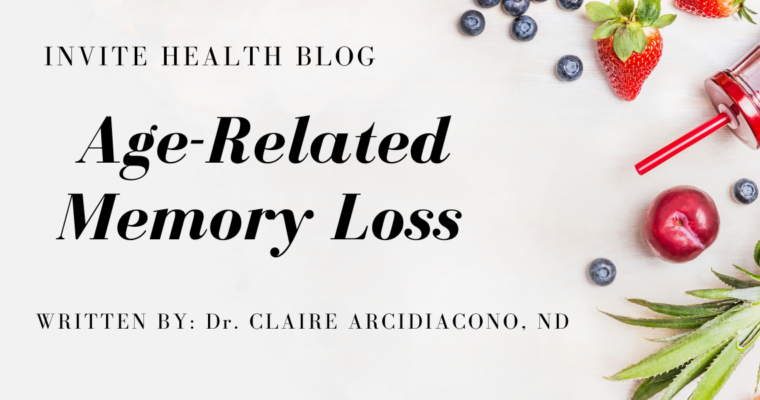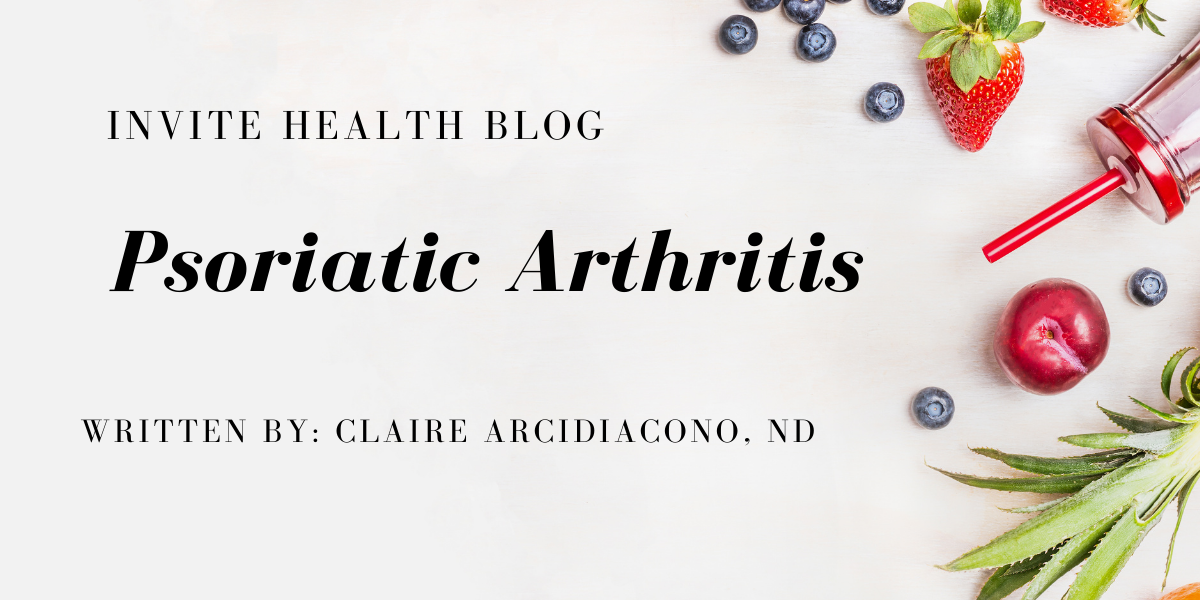Subscribe Today!
Please see below for a complete transcript of this episode.
B-COMPLEX VITAMINS ARE NEEDED FOR A HEALTHY BRAIN, INVITEⓇ HEALTH PODCAST, EPISODE 667
Hosted by Jerry Hickey, Ph.

*Intro Music*
InViteⓇ Health Podcast Intro: [00:00:04] Welcome to the Invite Health Podcast, where our degreed health care professionals are excited to offer you the most important health and wellness information you need to make informed choices about your health. You can learn more about the products discussed in each of these episodes and all that Invite Health has to offer at www.invitehealth.com/podcast. First time customers can use promo code podcast at checkout for an additional 15% off your first purchase. Let’s get started.† [00:00:34]
*Intro Music*
Jerry Hickey, Ph:[00:00:40] Who doesn’t want a well-functioning brain deep into old age and a couple of pointers on the brain? The brain is only a small part of our body mass, but it soaks up a great deal of energy, and integral to this energy are b-complex vitamins. In fact, B-complex vitamins are pretty much non-negotiable when it comes to brain health, later in life, at any point in life, they’re important. But in older years, there are some issues that we’re going to go into over this episode. So welcome to my podcast, B-complex Vitamins are absolutely needed for a healthy brain as we age. My name is Jerry Hickey. I’m a nutritional pharmacist and that’s always an honor and a privilege to be speaking with you. If you love these podcasts, they’re available for free wherever you listen to podcasts or just go to invitehealth.com/podcast. You can also find Invite on Facebook, Twitter and Instagram at Invite Health. All of the information on this episode will be listed under the podcast description. So, B-complex vitamins allow you to convert sugar into oxygen. In fact, if you’ve ever seen a PET scan, a PET scan picks up sugar usage by cells and you’ll see that on a PET scan, even if they’re looking at your heart or something, you’ll see on a PET scan, your brain is all lit up. That’s because the brain uses so much sugar, So the brain desires certain things. And even though the brain is only about £2 dry weight, the brain uses up about 20% the estimate is, 20% of the energy from each meal. Allowing the brain to use that energy is B-complex vitamins. For instance, you’ve heard of folic acid, folic acid is a synthetic form of folate, but a lot of multivitamins and B complexes have folic acid. And folate is named after foliage that’s ubiquitous in the plant kingdom. It’s also called vitamin B9, but rarely people just call it fully typically, and it’s probably well known mostly because it helps prevent birth defects. So they generally give it to pregnant women. It’s very important in that first trimester. It’s very important throughout pregnancy. You need it to create RNA, DNA and new cells, so very important in pregnancy. So, they fortify a lot of foods with folic acid. So folate and the active form, by the way, is methyltetrahydrafolate, and that’s an important point, I’ll explain why in a minute. Folate is four times higher in our brain than in our blood. And that’s really a key thing because you have to make new brain cells when you go to sleep at night, you go into a deep sleep, you release nerve growth factors like brain or neurotrophic factor. And if you release enough of that in a young person, they can literally create about 600 new memory cells every night when they’re sleeping. They get a good night’s rest that decreases with age. There are ways to get around that. To restore the release of brain-derived neurotrophic factor and other nerve growth factors to create memory cells. But you need Folate to make these, but you also need Folate to defend the brain from a chemical byproduct in a body called homocysteine. Homocysteine itself is not a bad thing, but when it gets high, it becomes an irritating solvent, and one of the things you could damage is brain function and brain tissue. And there’s a number of studies that implicate homocysteine as a cause of Alzheimer’s. Maybe not the only cause, but a cause of Alzheimer’s. And folate is probably the best thing for reducing elevated homocysteine levels. So, it’s really important for the brain and many levels allowing the brain to use sugar for energy because that’s the source of energy for your brain and allowing the brain to defend itself from homocysteine if it gets too high in concentration.† [00:04:35]
[00:04:37] So, B vitamins are needed in a healthy brain like the active form of folate. Now, I say that because not everybody is capable of converting the synthetic folic acid in most multivitamins and b-complex vitamins, not converting that into the active form, which is abbreviated MTHF, as M as in Mary, T as in Thomas, H as in Harry, F as in Frank , which stands for methyltetrahydrafolate. So you need to be able to convert this, so just in case, like when I design multivitamins, I actually put methytrahydrafolate in the multivitamin, so I know people are using it, I know that everybody’s using it because there also is some evidence that as we get older is a little harder to convert the folic acid into the active form. I don’t know how true that evidence is, but it’s there and it’s a little bit scary. So why not used a methyltetrahydrafolate? It’s not going to hurt, it’s only going to help. And then a form of B12 for the brain is methylcobalamin, that’s a very good form. Most multivitamins and b-complex vitamins, use cyanocobalamin and sadly not everybody can convert that into methylcobalamin, you need methylcobalamin for a healthy brain. So, these B-complex are key to ongoing good brain health and brain energy. For instance, there’s a B vitamin called Biotin. Biotin is needed for your nails and for blood sugar control and for your hair, and you need biotin in the brain. It interacts with the pantothenic acid in the brain. The level of biotin, a B vitamin, it’s also called vitamin H and Pantothenic acid, which is sometimes called vitamin B5. They’re 50 times higher in our brain and you need the biotin to use sugar in the brain, you need pantothenic acid to create energy out of fats and sugars. You need vitamin B2 in the brain, it’s also called riboflavin. It supplies oxygen to the brain, it’s changed to various forms like FMN and FAD. And these things allow the brain to use oxygen, and you’re using the oxygen to convert sugar into energy, something called ATP. You need vitamin B5 to pantothenic acid and vitamin B3. Vitamin B3 comes in a whole host of forms like nicotinic acid, which is niacin, or nicotinamide, which is niacinamide. They’re all pretty much the same. That’s vitamin B3, You need vitamin B5, B3, and B1 for the integrity of the structure of the brain cells. But you also need them for brain metabolism, you need them, for instance, the B1 works with an enzyme system called the transketolase system. So, the brain can use yours for energy. So, these are really important because you need that sugar for energy in the brain to function properly for your memory. And there’s some implication that poorly functioning B1 in the brain is a risk factor possibly for Alzheimer’s disease and other forms of dementia. So, these B vitamins are anti-aging. You need them for memory, you need them for brain energy, you need them for metabolism, you need them for your mood. Your brain functions on a little over 100 neurotransmitters. These are chemicals, natural chemicals to the body that are released from the nerve ending. And it goes to the next nerve and generates the message. And you’ve probably heard of some of these, like adrenaline would be epinephrine. Epinephrine as needed for quick function of the brain and norepinephrine so you focus, that’s called noradrenaline in places like England and Ireland. Then there’s another key one is, is glutamate for brain energy. GABA to relax the brain and for learning, acetylcholine, which is needed to heal the brain and create new memory cells and learn and remember and all of these different things interact. You probably know of serotonin, which is one of the, they have serotonin type drugs, drugs that keep serotonin around to help people with depression. But serotonin also helps control your appetite. So it does a number of things in the brain. It also helps keep you out of danger, aware of danger. Like if you went in a dark room, you’re releasing some serotonin. So your brain goes, Ooh, move slowly and carefully so you don’t trip over something and hurt yourself. So these neurotransmitters all function well. You probably know about dopamine, which is involved with reward. These neurotransmitters function and patterns to make the brain work properly. And you need the B vitamins to release these neurotransmitters like B5, B3, B1, B9, B6, B12. There’s so important. † [00:09:14]
ICYMI:THE MINERAL MAGNESIUM & OUR BRAIN, INVITEⓇ HEALTH PODCAST, EPISODE 666>>LISTEN NOW!
[00:09:17] So, let’s go into some of the studies. Now, I don’t have the study in front of me, and it was only one of a kind, but it was a very interesting study. But I remember studies. I might not remember that I have a wedding next week, but I remember studies. So, it was a study in England and it was healthy, middle-aged people who purportedly ate a good diet and they exercise, a lot of them were professionals. So they were leading a good lifestyle. And they found that if they gave them a B vitamin complex, their brain performed more optimally, it had more energy. So even these people pretty much in the prime of their life, in the prime of their work career, exercising, good life, good life all over, they’re making enough money to get by, etc., not sweating everything out. There, mentally, they did a little better, performance performance wise for the brain if they got all eight of the B-complex vitamins. So that, that’s kind of like, you know, one of a kind study. But I thought it was a very interesting study. It shows that even well-fed people who are kind of like in the prime of their life and physically fit, they don’t really get enough B vitamins from their meal to compensate for having enough of each. Which, you know, these people these young people could just take a multivitamin. They don’t need anything special. Most of them don’t need anything special, just a multivitamin. So, here’s a really fascinating study. There’s the United Kingdom Biobank cohort, they keep track of like a large number of people. And the researchers looked at 9426 people in this UK Biobank cohort. So it’s an ongoing study in the UK and they’re looking for data on depression and normal brain function. And how do vitamin B6, B12 or folate affect the brain? That is thousands of related studies showing this sort of thing. But this is a very interesting, interesting study. So, this was especially focused on depressed people, their mean age was 62.5 years. Here’s the thing, they found that depression was much more common in vegetarians and vegans. And so was a lower intake of vitamin B6 and B12. So, B6 and B12 and vegetarians, they need to look at that, their folate was fine because, like I said, folate is named after foliage because it’s ubiquitous in foliage. So their folate was fine, but they were low in B6 and B12, which, you know, B12 generally comes from animal products. So non-vegetarians like myself had a lower intake of folate, but I take a multivitamin what active folate the methyltetrahydrafolate in it, so I’m not concerned. Lacking B12 strongly affected a part of the brain called the right palladium in everyone and especially in those with depression is still trying to figure out what the right palladium is doing by the way. Lacking folate, this is really important, lacking folate shrunk gray matter. See folate is involved with the size of your brain and the volume of the volume of your gray matter. So it’s likely, according to these scientists, these researchers, that B6, B12 and folate affect the structure and likely function of your brain. This is really important in older people. Older people have some issues with absorption, but older people frequently are low in B vitamins. In fact, previously, maybe a year ago, I did a podcast, older people really have to consider taking certain supplements because they’re not making them any more certain things like collagen or they’re not using them effectively, things like B vitamins. And it’s very common for older people in their blood to be low in B12, B6, folate and other B vitamins. † [00:13:16]
[00:13:18] So, according to the Cornell Division of Nutritional Science up in Ithaca, New York, it’s likely to do with the blood-brain barrier. They said that the blood-brain barrier becomes leaky with age. Now, there’s a lot of science showing that, like Georgetown University showed that years ago when they were looking at Alzheimer’s patients. That’s one of the issues with Alzheimer’s that contributes to Alzheimer’s or causes Alzheimer’s or leads to Alzheimer’s. That’s one of those things. The blood-brain barrier has this extra coating on the blood vessels in the brain that keeps nasty things out of the brain. It’s not 100% effective because obviously marijuana and alcohol get into the brain. But in general, it’s keeping out bacteria and fungi and hopefully viruses and all kinds of toxins. Because things that might harm the body a little bit might be deadly in the brain. So the brain, the blood-brain barrier, and there’s also a whole bunch of blood vessels, capillaries at the base of your spine, that’s why millions of them keep nasty things out of the spinal cord, because that will also lead into the brain. So likely the blood-brain barrier is becoming leaky with age, and this is directly connected with low folate in your brain. You’re not absorbing folate properly. So here’s their exact words, the exact words of the researchers up in Cornell. Loss of blood-brain barrier function, which occurs in inborn errors of metabolism and in chronic diseases which, you know, become more common as you grow older, can cause brain-specific folate deficiency and it contributes to disease co-morbidity. So what’s co-morbidity? Other things that happen from a disease like a great example of that would be people with diabetes, the blood sugar disease, they have a high risk of dementia. They have a higher risk of pancreatitis. They have a higher risk of kidney failure. So they have a higher risk of a broken hip because their diabetes hollows out their bones. So these that’s what a co-morbidity is. Folate deficiency contributes to disease, co-morbidity, other things happening. So, also, like I said, there’s many studies that elevated homocysteine increases your risk of Alzheimer’s disease. That alone seems to increase your risk of Alzheimer’s disease without any other issue, which is directly related to a lack of folate in the brain. And by the way, other studies have shown that lacking folate in the brain is a direct cause of depression. It’s a big risk factor for depression. So these B vitamins are super important for the brain. Here is the journal Nutrients May 2021. It’s the Department of Neuroscience and Functional Pharmacology at Alabama University. I’m sorry, Uppsala, my handwriting. Uppsala University, which would be over in Finland. They do good research, by the way. A deficiency of vitamin B6 and B12, which is seen in vegans and vegetarians, and I would add the elderly. You see this in the elderly all the time, is connected to an increased risk of depression and poor brain function. Now the Jean Mayer, United States Department of Agriculture Human Nutrition Research Center on Aging, so they have a Nutrition Center on Aging. This is at Tufts University up in Boston, Massachusetts. And they publish some, they do a lot of great research, especially on aging. And they found, they published their findings in the journal Current Opinions in Clinical Nutrition and Metabolic Care. What they found was cognitive decline, you know, a decline in your reasoning abilities and also Alzheimer’s disease are connected with lower folate levels. Separately, they said elderly people respond better to antidepressant treatment if they have sufficient folate. Now, that’s true. There’s a number of studies that show that certain nutrients help antidepressive medication work better. And it’s not dangerous to take these supplements with the antidepressant medicine. Those nutrients would be vitamin B6, vitamin B12, folate, the mineral magnesium, fish oils, and sometimes acetyl l-carnitine, depending on the situation.† [00:17:49]
[00:17:53] The SUNY Downstate is in Brooklyn, the great state of Brooklyn, which is very beautiful this time of year. Their Department of Medicine published findings in the journal Nutrients several months ago in May 29th of this year. You need B vitamins for your brain health, this is what it, this is their findings, you need B vitamins for brain health, you need B vitamins for brain energy, you need B vitamins to heal the brain. You need B vitamins to maintain your memory and you need B vitamins to create and release the proper neurotransmitter at the proper time. So in other words, for the brain to function, you need B vitamins. And like I said, older people, they really have to pay attention to their B vitamins. And of course, a lot of new research over the past several years have shown that vegans and vegetarians should pay attention to specific B vitamins also, namely B6 and B12 in vegans and vegetarians. This is the Journal of Neurology, Neurosurgery and Psychiatry. And this is many researchers because they collated a huge amount of evidence. They did a meta-analysis, which means they found a whole bunch of studies that were high-quality and well-reported, well-performed studies. When you put a whole bunch of studies together, ten, 20, 30 studies, that’s a lot more subjects. That’s a lot more people, that’s a lot more different clinics and hospitals and research institutions and academic institutions, it’s a lot more researchers. So, when you do a meta-analysis analysis correctly, like focusing on 20 or 30 studies, it proves something either works or it doesn’t work. And because the meta-analysis is using all different studies, it generally weakens the results. So the results are usually a little better than the meta-analysis points to. So, this meta-analysis included a huge amount of studies, a whopping 323 studies. And they found strong evidence from all these studies, from many of these studies, strong evidence that having sufficient folate is protective against Alzheimer’s disease. Having sufficient folate is protective against Alzheimer’s disease. They also found strong evidence that depression increases the risk of Alzheimer’s disease, and that elevated homocysteine significantly increases the risk of Alzheimer’s disease. That’s why you need your B12, your B6, and the folate that helps manage all these things. So this last study that I am going to go over is from the Karolinska Institute. They have an aging research center, but it also included various clinics throughout Europe and medical schools. And they found that low serum folate serum, is the red part of your blood. Low serum folate increases your risk of inflammation. You never want to be consistently inflamed, is very bad for you. Now, of course, there are certain points where you need inflammation for healing and you need inflammation to kill viruses and bacteria and other infections, but you don’t want to be consistently inflamed. It’s very dangerous. So having low serum folate increases the risk of inflammation, according to the Karolinska Institute and these other research institutions. Patients with Alzheimer’s disease in this study were supplemented with folate for six months. They had mild to severe Alzheimer’s. The supplementation actually modestly improved the results on a mini mental state exam and it reduced brain inflammation. So, that’s a lesson to all of us.† [00:21:44]
SUMMARY ON BRAIN HEALTH, INVITE HEALTH BLOG>>READ NOW!
[00:21:45] So here’s the take home. You don’t need a huge amount of B vitamins, like some B-Complex vitamins. You don’t need 100 milligrams of all the B vitamins, that’s ridiculous. But getting like 25 milligrams in older people is a very good thing. 25 milligrams of each B vitamin. Try to get a B-complex that has the active folate in it. You don’t want the folic acid if you can get around it, you want the methyltetrahydrafolate and it would probably be a good idea to get the active form of B12, which is methylcobalamin. As far as the other B vitamins, people don’t generally have a problem with them. There is one B vitamin that I didn’t cover in this report, it’s called choline. If you could get choline into the brain, it’ll help create acetylcholine. Acetylcholine levels drop with age. We’ve done several podcast episodes discussing acetylcholine in the brain and choline in the brain. And acetylcholine allows you to learn, allows you to remember and allows you to make new memory cells when you go to sleep at night. So that’s all important. It also helps you unravel problems. It works with other neurotransmitters like GABA and glutamate so you can learn and remember and solve issues and it’s all good. So, a great place to get choline is Krill oil capsules because that type of choline gets into the brain very readily. It’s called phosphatidylcholine. So, that ends the episode. I hope you enjoyed it. You can find all of our episodes for free at Invite Health, anywhere you listen to podcasts to get them for free, or just go to invitehealth.com/podcast. And you can also once again find Invite on Facebook, Twitter and Instagram at Invite Health. And they ask me to say, If you could subscribe and leave a review, it would be very helpful, especially that review. I love that review. It really gives me guidance. I want to thank you for listening, Jerry Hickey signing off and I hope to see you next time on the next episode of Invite Health.†
*Exit Music*















